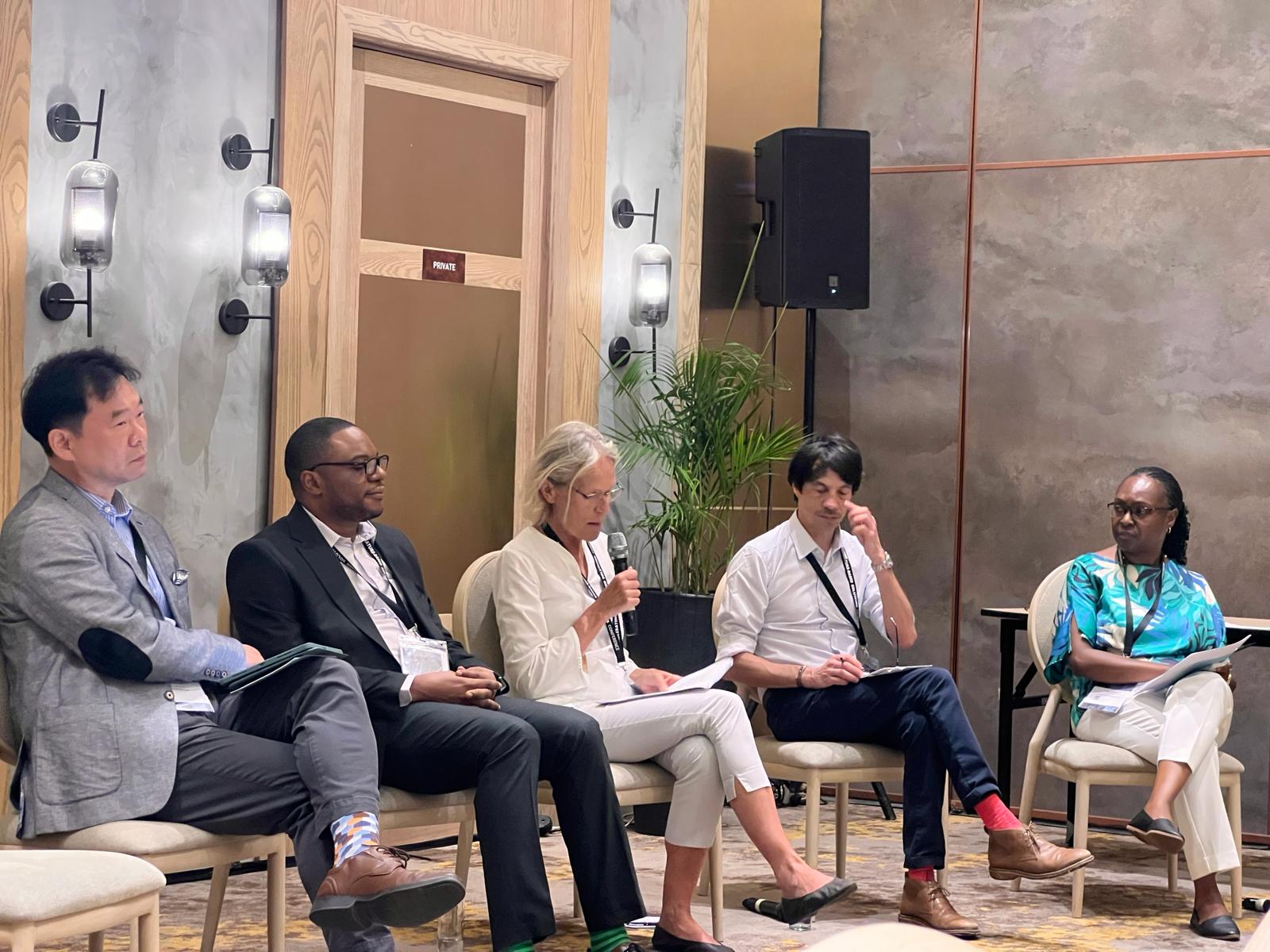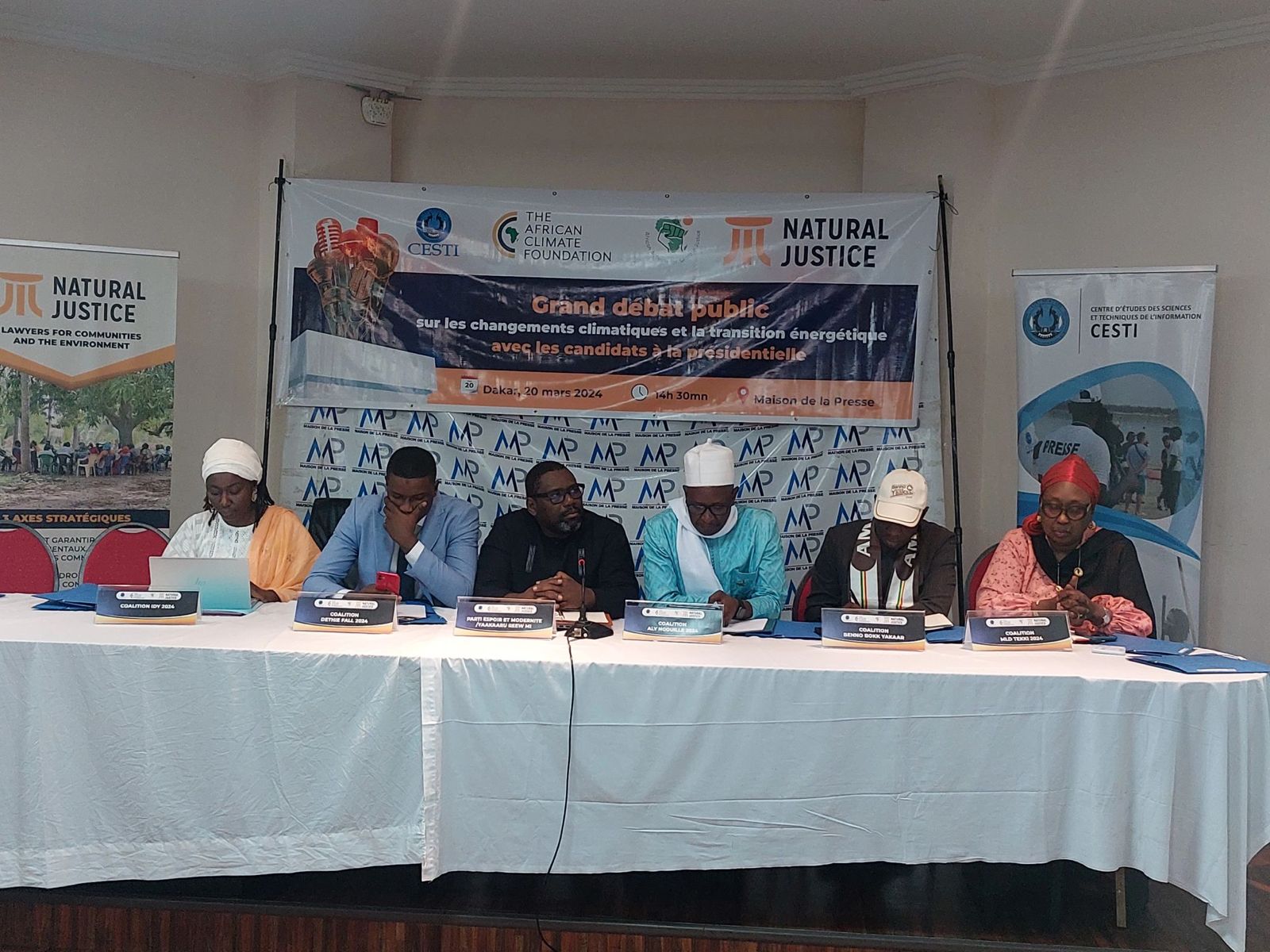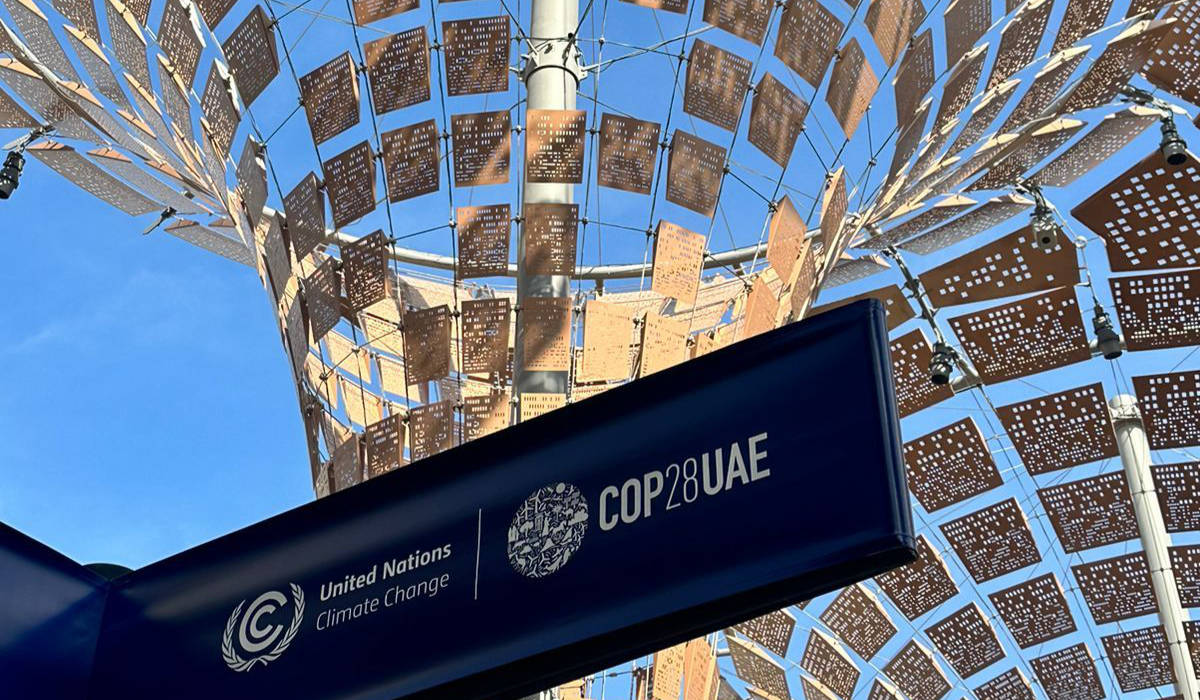On the third anniversary of the African Climate Foundation (ACF), Executive Director Saliem Fakir reflects on the ACF’s achievements and looks forward to successes to come.
The African Climate Foundation was established in 2020 to address the continent’s climate and development challenges in tandem. Today, the ACF is the first African-led foundation working to integrate climate mitigation and adaptation into the continent’s broader economic agenda. We invest in the people, organisations and movements that have a vision for transitioning away from extractive economies and reconciling human and ecological well-being.
Through a combination of grant-making, research, technical assistance, and targeted advocacy, we are nurturing the African leaders of tomorrow and building broad coalitions that will deliver change.
Our work now has a reach in 23 of Africa’s 54 countries and with intensive activists in South Africa, Kenya, Namibia, DRC, Senegal and Nigeria, where we support the resilient transformation of energy systems, land use and agriculture, and cities.
Shaping a new narrative
In the three years since its creation, the ACF has sought to overcome reductive narratives that confined African climate action to narrow diplomatic corridors at the UN Climate Change conferences and which were often disconnected from countries’ development priorities.
The general global narrative about Africa’s climate issues placed emphasis on climate adaptation and climate finance with little attention given to the energy transitions and issues of economic transformation – so even climate finance tended to be about projects and not systemic change.
Rich countries’ priorities pervaded engagement with the continent, including development assistance. Climate risks were framed in relation to peace, security and migration – issues perceived to have a spillover effect on other regions’ borders and concerns over immigration without asking why this was the case in the first place.
The ACF has helped to shape a new narrative which spotlights how addressing climate risks can go hand in hand with meeting African countries’ development priorities, such as eradicating energy poverty and more resilient economies.
This conceptual integration of economic development with climate issues has been one of our biggest achievements. It remains critical to building resilient societies.
The increasing frequency and intensity of climate events are directly affecting critical infrastructure and key economic sectors. And without the appropriate support interlinked with broader economic issues climate risks get to be treated as an aid and humanitarian concern. It tends to reinforce the interests of the aid community rather than solve underlying issues facing the continent.
On the other side the decarbonisation agenda of other economies without the appreciation of their effects on the African continent is counterproductive at two levels: one decarbonisation becomes a penalty directly or indirectly affecting Africa and secondly without giving the tools for transition support African economies will become less resilient and in some cases disconnecting Africa from the global economy – in which decarbonisation without sensitivity and a just transition will become the driver of a new form of decarbonisation apartheid.
For example, the EU plans to impose tariffs on carbo-intensive imported goods will disproportionately impact Africa and conflict with Africa’s development needs. It is these types of issues that the ACF is seeking to address so the continent is better prepared for the decarbonisation transition through a stronger voice and not be a victim but a beneficiary of these transition processes given the continent’s vast solar, wind, and minerals resources. Not to mention the creativity of its people and the growing market for energy, mobility and more sustainable foods.
Early wins
To achieve this, the ACF provides intellectual, political and technical leadership through our 22 staff members and by building an ecosystem of partners to advance this agenda.
We support interventions that anchor climate action into post-Covid-19 recovery plans and have African-based solutions to responses to ballooning debt, high inflation and the need for cheaper sources of financing.
Between April 2020 and December 2022, we have disbursed 84 grants worth more than $ 6 million. Currently, only 2-3% of annual philanthropic funding spent globally reaches Africa. We are committed to engaging philanthropies to catalyse more investments into the continent.
One of our first projects was to support partners in South Africa to design a way out of coal and embed the concept of “justice” in the energy transition discourse. This early work encountered phenomenal success. It led to the signing of an $ 8.5 billion Just Energy Transition Partnership between South Africa and international partner countries.
Other African nations, including Senegal, Nigeria and Namibia, are interested in similar support. Nimble and able to respond to specific contexts, the ACF has expanded its work in these countries and is helping mobilise resources.
We are opening a space for African voices to become a part of the global conversation about the climate and development nexus. In 2021, we launched a lecture series on the topic at the Nelson Mandela School of Public Governance at the University of Cape Town. It attracts leadership from a range of players – in government, civil society, business and academia.
What to watch
From high-level political diplomacy to locally-led blueprints for resilient societies, the ACF continues to work across three critical and interconnected levers of change. We are deepening our research on the geopolitics of the energy transition, zooming in on Africa’s relations with major trading partners, including China, the US and Europe.
At the national level, we are supporting countries that use climate action and clean technologies as economic opportunities. In this respect, we are stepping up our work on the use of critical minerals in clean tech manufacturing.
And at the local level, we are strengthening campaigns promoting alternative development models in communities that are highly dependent on fossil fuels – a new form of engagement which we are trialling in the coal mine areas of South Africa. Coal will not be a viable economic option for coal mining areas in the long term and so we are keen to work with local communities to develop their own alternative vision of a world without coal. The answers are there we need to listen to their ideas and lift these multiple visions to the national level.
This is about building bold, socio-economic movements that support livelihoods away from extractive industries and that can hold the state and the private sector accountable for this transition. Part of this vision is not only to hold coal and mining companies accountable but also clean energy companies – who may not have the angelic halo we may assume they have because they are doing the stuff humanity needs today.
The ACF is designed to be a catalyst for new ideas and completely transform the climate debate from a narrow environmental concern to one of the future of economic development and the interlinkages between climate investments, growth and social justice.



